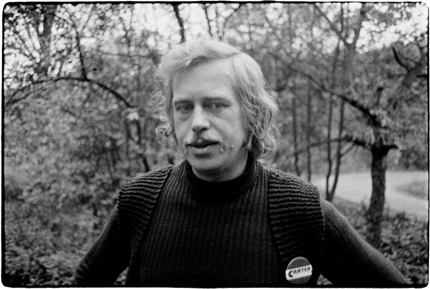Václav Havel Human Rights Prize

“Without dreaming of a better Europe we shall never build a better Europe.”
Václav Havel, before the Parliamentary Assembly.
Strasbourg, May 1990.
The Václav Havel Human Rights Prize is awarded each year by the Parliamentary Assembly of the Council of Europe (PACE) in partnership with the Václav Havel Library and the Charta 77 Foundation to reward outstanding civil society action in the defence of human rights in Europe and beyond. The prize’s laureate is selected, on the basis of nomination, by a seven-member international jury headed by the president of the Parliamentary Assembly. The rules for nomination are here.
Previous Laureates of the Václav Havel Human Rights Prize
- 2023 Osman Kavala (Turkey) -Turkish dissident and philanthropist
- 2022 Vladimir Kara-Murza (Russian Federation) is a Russian politician, author and historian.
- 2021 Marija Kalesnikava (Belarus) - Belarusian opposition leader and activist.
- 2020 Loujain Al-Hathloul (Saudi Arabia) is one of the leaders of the Saudi feminist movement.
- 2019 Ilham TOHTI (China) is a renowned Uyghur scientist and professor of economics in China. He has worked for over 20 years to foster dialogue and understanding between Uyghurs and Chinese. In September 2014, he was sentenced to life imprisonment.
- 2018 Oyub Titiev (Russian Federation), in detention since January 2018, is a prominent human rights defender and head of the Grozny representative office of the Memorial Human Rights Center in Chechyna. Mr Titiev succeeded Natalia Estemirova, murdered in 2009, as head of the Memorial Human Rights Centre in Chechnya, and has made a widely recognised contribution to the defence of human rights in the region by reporting on abuses by the local authorities.
- 2017 Murat Arslan (Turkey), in detention since 2016, is a well-known and reputed judge. President of the now dissolved Association for the Union of Judges and Prosecutors (YARSAV), he has always been a supporter of the independence of the judiciary.
- 2016 Nadia Murad (Iraq) A young, brave Yazidi woman, who managed to flee ISIS in northern Iraq. Today a human rights activist, she brings the plight of the Yazidi community, in particular the forced sexual enslavement and human trafficking of women and children captured by ISIS, to the forefront of international attention.
- 2015 Lyudmila Aexeyeva (Russia) is a veteran human rights defender in her native Russia. In her youth, she gave up a promising academic career to join the Soviet dissident movement, going on to become a founding member of the Moscow Helsinki Group. Forced to emigrate to the US in 1977, she returned to Russia in 1989 to continue her work, becoming President of the International Helsinki Foundation and later joining the Russian President’s Commission on Human Rights. She has worked relentlessly for the protection and promotion of the rule of law.
- 2014 Anar Mammadli (Azerbaijan) is a renowned Azerbaijani human rights defender who has made a marked contribution to the respect of human rights and free elections in his region. He is founder and chairman of the Election Monitoring and Democracy Studies Centre (EMDS), which since 2001 has monitored votes in Azerbaijan. In December 2013, Anar Mammadli was charged with “abuse of office” and in May 2014 was sentenced to five and a half years in prison.
- 2013 Ales Bialiatski (Belarus) From the start of the 1980s, Ales Bialiatski, a young Belarusian writer and graduate of the Gomel University Faculty of History and Philology, joined the national democratic movement. While the world was still divided by the Iron Curtain, he became a founding member of the Belarusian Popular Front. Helping to create a young writers’ association that he chaired for several years, Ales went on to join the Belarusian Writers’ Union. Later, he organised the first demonstrations against totalitarianism. This commitment led to his imprisonment in 1988, marking the start of a long series of arrests and harassment. In 1996, in the face of the increasing repression of the Lukachenko regime, Ales Bialiatski created the Human Rights Centre Viasna. In 2007, just three years after joining International Federation for Human Rights (FIDH), Ales Bialiatski was elected its Vice-President, the first representative of the former Soviet countries to be elected to the FIDH International Board.



